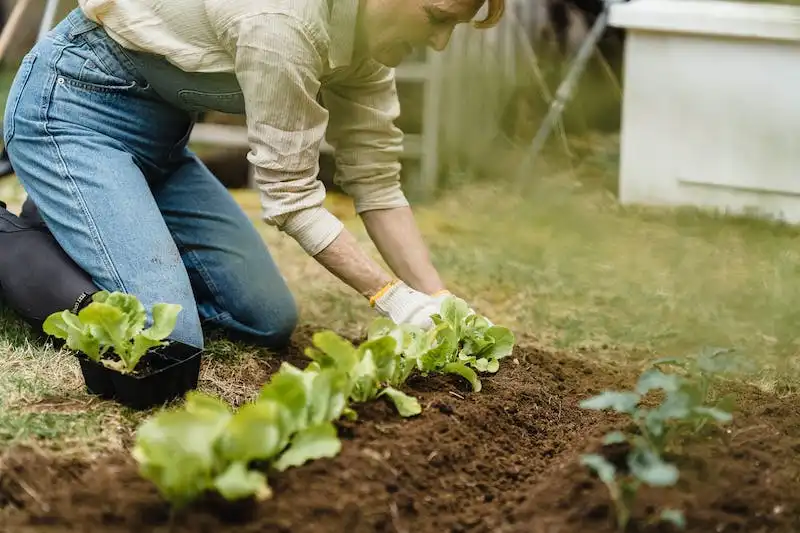Are you wondering how to train your climbing plants to grow taller and stay healthy? Look no further than a moss pole, a fantastic and natural solution for providing support to your leafy green companions. Moss poles, rather than being just decorative, serve a crucial purpose in the care and training of climbing plants, such as monsteras. This article will guide you through the steps of creating and using a moss pole, so you can get started on your indoor plant training journey.
Moss poles are commonly made using materials like sphagnum moss, coco coir, and bark. The moss portion absorbs water and provides a protective environment for the climbing roots, while the sturdy pole offers a secure place for the plants to attach and grow. One important note to keep in mind is that when creating a moss pole, it’s essential to soak the sheet moss before securing it around the pole, as this will help promote successful rooting.
To create a moss pole, gather all the necessary materials and equipment, such as a tote with clean water, sphagnum moss, coco coir or bark, rubber bands, scissors, and a pin or stapler. Start by cutting a section of the moss sheet, long enough to cover the desired height of the pole. Squeeze out any excess water from the moss before wrapping it around the pole and securing it with rubber bands or staples. Make sure the moss is tightly attached to the pole to prevent it from slipping or sagging over time.
Once your moss pole is ready, it’s time to plant your climbing plant! Choose a suitable pot and fill it with well-draining soil. Insert the moss pole into the soil, making sure it’s sturdy and stable. Gently place your plant next to the pole and use twist ties or plant clips to attach the stems or vines to the moss. This will help guide the growth of the plant towards the pole, ensuring it climbs and trains properly.
Caring for your moss pole and plants is relatively easy. Check the moisture of the moss regularly, and if it feels dry, give it a thorough watering. Be cautious not to over-water, as excessive moisture can lead to rotting roots. Monitor the growth of your plant, and as it gets taller, you may need to adjust the training by attaching more stems or vines to the moss pole. Over time, you’ll witness your climbing plant flourish and create a sustainable and beautiful indoor decoration.
How to Create a Moss Pole for Your Indoor Plants
If you own monsteras or other climbing plants, you may have noticed that they tend to grow out of control. A moss pole can help train them to grow in a more vertical direction, creating a beautiful and natural decoration for your home. Before getting into the care instructions, it’s important to note that creating a moss pole is a relatively simple DIY project that requires a few materials.
Materials
To create a moss pole, you’ll need the following items:
| – A wooden pole or bamboo stake |
| – Sphagnum moss |
| – Coco coir or a sheet of burlap |
| – Zip ties or plant tape |
| – Rubber gloves |
| – Water |
Instructions
Here are the steps to create your own moss pole:
Step 1: Prepare the Pole
Start by securing the wooden pole or bamboo stake in a sturdy pot. Make sure it’s tall enough to accommodate the future height of your plant.
Step 2: Soak the Moss
Put on your rubber gloves and soak the sphagnum moss in water until it’s thoroughly moistened. Squeeze out any excess water.
Step 3: Create the Moss Layer
Take the moistened sphagnum moss and loosely wrap it around the wooden pole or bamboo stake. Use zip ties or plant tape to secure the moss in place.
Step 4: Add Coco Coir or Burlap
If you prefer, you can cover the sphagnum moss with a layer of coco coir or a sheet of burlap. This will provide additional support for your climbing plant.
Step 5: Place the Moss Pole
Put the moss pole in the pot with your plant, making sure it’s positioned next to the vine or climbing portion. Secure it firmly in the soil.
Step 6: Water and Train
Water your plant as usual, making sure to also water the moss pole. As the plant grows, gently guide the vine or climbing portion towards the moss pole, encouraging it to attach and climb.
Step 7: Watch it Grow
With your moss pole in place, you’ll be amazed at how your indoor plant starts growing and absorbs the support. Soon enough, you’ll have a beautiful, well-trained plant to greet you every day.
What Is a Moss Pole
A moss pole is a wooden pole that is covered in sphagnum moss, which is a thick, absorbent material. It is used as a support for climbing plants, such as monsteras, to grow and train on.
Creating a moss pole is an important step in caring for and growing indoor plants that need support. The moss pole provides a sturdy structure for the plant to attach its aerial roots and climb. It also helps to encourage the plant to grow vertically, creating a beautiful decoration in your home.
To create a moss pole, you’ll need a wooden pole, sphagnum moss, rubber bands or twine, and some protective equipment like gloves and eye goggles. Before getting started, gather all the materials and read the instructions carefully.
First, soak the sphagnum moss in water to make it moist and easier to work with. Squeeze out any excess water before using it. Take a sheet of sphagnum moss and wrap it around the wooden pole, starting from the bottom and working your way up. Use rubber bands or twine to attach the moss to the pole at regular intervals. Make sure the moss is thick enough to provide a good surface for the plant to attach to.
Once the moss has been attached to the pole, it’s time to mossify your plant. Attach the climbing plant to the moss pole using twine or other materials. The plant will gradually attach itself to the moss and start climbing up the pole. Make sure to gently train the plant to grow in the desired direction.
It is important to note that not all plants require moss poles. Some plants, like rubber trees and money trees, can grow well without them. However, for plants like monsteras that naturally grow as climbers, moss poles are essential for their proper growth.
So, next time you have a climbing plant that needs support, consider creating a moss pole to help it thrive. Follow these steps and enjoy the beauty of your well-trained, climbing indoor plants!
Source: Some portion of the text has been taken from https://www.thespruce.com/how-to-make-a-moss-pole-5178456
Before Getting Started
Before you start creating your moss pole, there are a few important things you need to know. First and foremost, it’s crucial to have a sturdy pole that can support your climbing plants. The pole should be wide enough to provide ample support for the plants as they grow.
Next, you’ll need to soak your sphagnum moss in water. This will allow the moss to expand and become more pliable, making it easier to work with. Make sure to fully saturate the moss and allow it to soak for at least 10 minutes before using.
Before attaching the moss to the pole, it’s a good idea to bendable vine around the pole. This will create a rough surface for the moss to cling to, ensuring that it stays in place as your plants grow.
Now, let’s talk about materials. The most common materials used for moss poles are coco coir and sphagnum moss. Both of these materials are sustainable and work well for creating moss poles.
To create your moss pole, you’ll need the following materials:
| Note cards or thick paper | A spruce or wooden pole | Some sphagnum moss | Cable ties or wire | Scissors |
Now that you have all of your materials, it’s time to get started! Follow the steps below to create your moss pole:
- Take a sheet of thick paper or a note card, and cut it into a 4-inch wide strip.
- Wrap the strip of paper around the pole, starting at the bottom and working your way up.
- Secure the paper strip to the pole using cable ties or wire.
- Take a handful of soaked sphagnum moss and squeeze out any excess water.
- Begin wrapping the moss around the pole, starting at the bottom and working your way up.
- Secure the moss to the pole using cable ties or wire.
Before attaching your moss pole to your plant, make sure to give it a good soak in water. This will ensure that the moss is moist and ready to support your plant as it grows.
It’s important to note that moss poles are not only a functional item for growing plants, but they also serve as a decorative accent for your indoor space. Plus, they provide an opportunity to showcase your signature DIY skills!
Before getting started, make sure to read and follow any specific instructions included with the plants you plan to mossify. Different plants may have varying requirements for training and attachment to the moss pole.
With these easy steps and a bit of patience, you’ll be able to create a beautiful moss pole for your climbing plants to thrive on!
Warning
Creating a moss pole for your indoor plants can be a fun and easy DIY project. However, it is important to take certain precautions when working with the materials and following the instructions.
First, it is important to wear sturdy gloves and protective eyewear before getting started. Working with bark and moss can be messy, and wearing rubber gloves will protect your hands from any potential irritations.
Before planting your moss pole, soak it in water for about 30 minutes. This will help the moss stick to the pole and ensure that it stays moist, which is important for the climbing and training of your plant.
When attaching the moss to the pole, make sure to squeeze out any excess water. This will help the moss adhere properly and prevent any mold or mildew from forming.
One important step is to secure the moss pole to the pot. You can do this by inserting the pole into the pot before planting your plant. This will provide support and stability for your plant as it grows.
It is important to note that moss poles are not suitable for all plants. They are particularly useful for climbing plants like monsteras or those that require extra support. If you are unsure if your plant will benefit from a moss pole, do some research or consult a plant care professional.
Moss poles are made from natural materials like bamboo or bendable PVC. These materials are strong and durable, but they do have a limited lifespan. Over time, the moss may start to degrade or lose its effectiveness in climbing support. If you notice that your moss pole is deteriorating, it may be time to replace it with a new one.
To create your own moss pole, you will need materials like sphagnum moss, bamboo poles, and twine. You can find these materials at your local garden center or online.
Follow these steps to make your moss pole:
- Soak your sphagnum moss in water for about 30 minutes before starting.
- Attach a signature portion of the moss to the pole using twine, making sure to squeeze out any excess water.
- Insert the moss pole into the pot, securing it firmly in the soil.
- Plant your climbing plant near the moss pole, making sure to press the roots firmly into the soil.
- Care for your plant as usual, providing it with water and sunlight as needed.
With proper care, your moss pole will keep your plant healthy and add a decorative element to your indoor space. Just remember to monitor the condition of the moss pole and replace it if necessary.
Follow these steps and take the necessary precautions, and you’ll be on your way to creating a sturdy and effective moss pole for your indoor plants!




